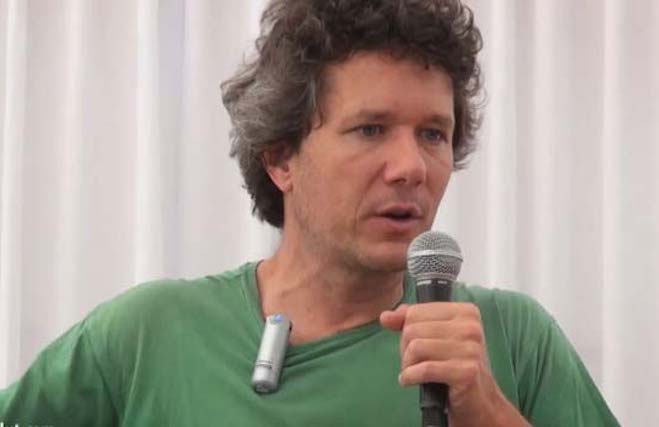The marijuana mentures the symptoms of cancer and the side effects of the cures. But what is its influence on tumor cells?
Studies on CBD cannabis and therapeutic cannabis are still in progress, especially regarding the benefits of marijuana on cancer.
One thing is certain: CBD, contained in large quantities especially in legal weed, helps to counteract the symptoms of cancer and also reduces the physical discomfort caused by treatments such as chemotherapy and radiotherapy.
Also THC, often demonized as a psychoactive substance of cannabis, produces beneficial effects in case of cancer (and in fact is contained in high percentages in therapeutic cannabis).
Today we will talk about the benefits of cannabinoids on cancer patients. What are the results of the studies conducted in this regard?
Let’s look first of all at what Dr. Manuel Guzmán, professor at the Department of Biochemistry and Molecular Biology at the Complutense University of Madrid and coordinator of the Cannabinoid Signaling Group of the same university, said.

Dr. Guzmán’s claims about the benefits of marijuana on tumors.
According to Dr. Manuel Guzmán, the active ingredients of cannabis and their derivatives (such as CBD oil and drugs) attenuate some tumor symptoms. In fact, CBD has an antiemetic, analgesic function and, together with THC, is capable of stimulating appetite.
Marijuana and its derivatives are therefore very useful in case of nausea / vomiting and lack of appetite caused by both cancer and some of its pharmacological treatments.
Regarding the inhibition of tumor cells, the studies are still ongoing at a global level. It is premature to say that cannabinoids stop the growth of tumors, but at the time of laboratory analysis they gave excellent results on mice used as guinea pigs.
In any case, Dr. Guzmán states that, since cancer is a very serious and differentiated disease (as there are hundreds of types of cancer), it is very difficult to fight it.
Despite all this, an important study has shown that alcoholics who also take cannabis have less chance of developing hepatocarcinoma (or liver cancer) than alcoholics who do not use marijuana and derivatives.
Read the following article to learn more: “Marijuana and liver: did you know that cannabis has a positive effect on liver disease?”
Now let’s see some details on researches concerning the benefits of cannabis on tumors.
Read also: Marijuana and hypertension
Cannabinoids and inhibition of tumor cells in laboratory animals.
Almost all studies on cannabinoids (present in both legal and non-depleted marijuana and also produced synthetically) were conducted by experimenting with animals and tumor cells grown in the laboratory.
Many of these studies have shown that cannabinoids:
- activate cell death by apoptosis, or programmed cell death;
- prevent angiogenesis, or the development of additional blood vessels in tumors;
- prevent cell division;
- they reduce the probability that the tumor goes into metastasis, or expands;
- they promote autophagy, or the elimination of cells that are useless or harmful to the body.
This showed that the active ingredients of cannabis are effective for the treatment of certain types of cancer in laboratory animals, particularly mice and rats.
But then is it possible to treat tumors with cannabinoids in humans?

Cannabinoids and the fight against cancer in humans: what is known about it?
Regarding tumors, Dr. Guzmán states that transposing the positive results of cannabis on animals and humans is an extremely delicate issue.
It should be remembered that the studies mainly concern the benefits of cannabinoids on tumors in mice and rats, organisms much less complex than the human body.
Although the web is rich in sources that boast cannabis as the perfect cure for cancer, without contraindications or side effects, in reality for the moment it is better to remain cautious and wait for new developments.
Although it is possible to find cancer patients who claim to have received strong benefits from using marijuana, there are many questions about it.
For example, it is not known whether the tumors regressed spontaneously, it is not known how many people have used cannabis and derivatives without having benefited, whether one of the classic anticancer therapies etc. has been carried out (together with cannabinoid therapy).
According to Dr. Guzmán it is possible that in some cases the cannabinoids have benefited in subsistence of some types of cancer, but unfortunately, the scientific evidence is still scarce. It is therefore not possible, for the moment, to say with certainty that all cancer patients can be treated with marijuana and derivatives, nor which patients can really benefit from them.
But there is hope at least for brain tumors …
Read also: Marijuana and liver, did you know that cannabis has a positive effect on liver diseases?
Marijuana and brain tumor (glioblastoma multiforme)
Not only CBD: nine patients suffering from a very serious form of brain tumor, the advanced and recurrent glioblastoma multiforme, were given purified Delta-9-tetrahydrocannabinol (THC).
This substance was introduced directly into the brain by using a catheter. Biomarker analysis and diagnostic imaging show that some of these people responded partially to THC: the growth of the tumor did not stop but it nevertheless slowed down. Although the number of patients was small, the test results are promising and encourage further research on cannabis and the fight against cancer.
For the moment we can therefore say with certainty that the principles of cannabis help to counteract the tumor in small laboratory animals and that potentially could also help humans. In addition, CBD, highly contained in both CBD weed and CBD oil, significantly attenuates tumor symptoms as well as those following chemo and radiotherapy.
It is hoped that scientific research will continue at full speed and that a way will be found to concretely help cancer patients in a natural way and without the side effects of which the current treatments are unfortunately rich.



